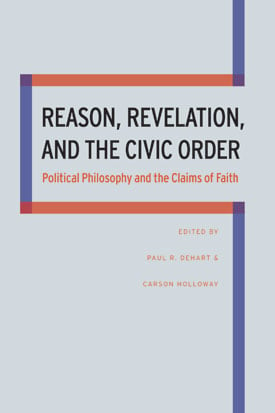This is deeply troubling, since the purpose of inserting “under God” in the Pledge was to distinguish America’s belief that human rights and dignity have their source in God with the Soviet belief in philosophical materialism and that it is the State that exclusively imparts to us our rights.
In an article I published in the Santa Clara Law Review 49.2 (2009), “The Courts, Natural Rights, and Religious Claims as Knowledge,” I briefly discuss the origin of the “under God” portion of the Pledge in footnote 45 (pages 442-443). In that footnote, I quote from the Congressional Record that documents the reasons for the 1954 insertion of “under God” in the Pledge:
At this moment of our history the principles underlying our American Government and the American way of life are under attack by a system whose philosophy is at direct odds with our own. Our American Government is founded on the concept of the individuality and the dignity of the human being. Underlying this concept is the belief that the human person is important because he was created by God and endowed by Him with certain inalienable rights which no civil authority may usurp. The inclusion of God in our pledge therefore would further acknowledge the dependence of our people and our Government upon the moral directions of the Creator. At the same time it would serve to deny the atheistic and materialistic concepts of communism with its attendant subservience of the individual. [You can read my entire article here]
It is really shocking that Rep. McCollum would find such a quintessentially American rationale of our human dignity and rights as unworthy of being acknowledged on the floor of Congress while leading her colleagues in a recitation of the Pledge. Of course, not everyone believes in God, and our Constitution protects our fellow citizens who in fact hold that view. If Rep. McCollum is one of those atheists, and thus felt uncomfortable saying “under God” in public, we should respect her right to hold that belief. But reciprocity requires that she extend the same courtesy to others, that she respect what her 1954 colleagues had passed overwhelmingly with the support of the vast majority of her fellow Americans. For this reason, she should have respectfully declined from leading her colleagues in the Pledge. By not recusing herself, Rep. McCollum needlessly offended and shocked the sensibilities of many of her fellow citizens.
(Full disclosure: Representative McCollum is running for re-election against my friend, Professor Teresa Collett)
















